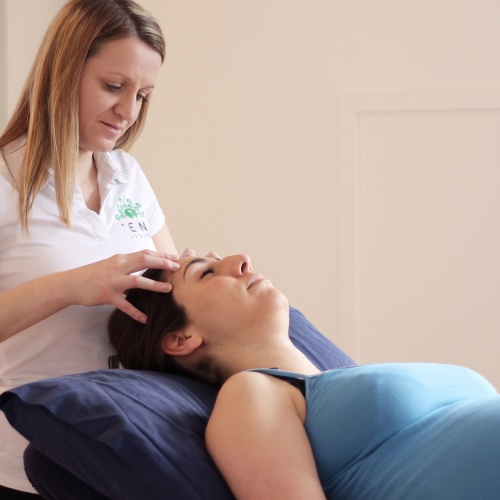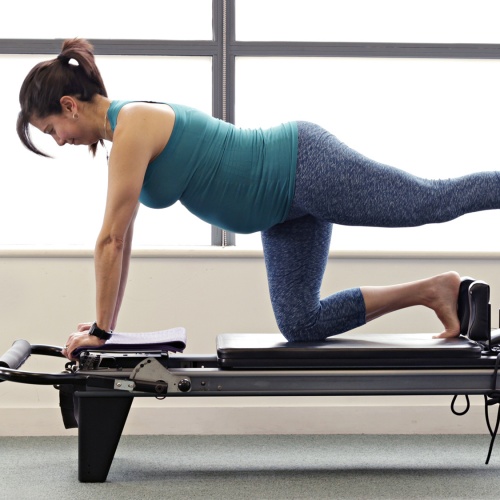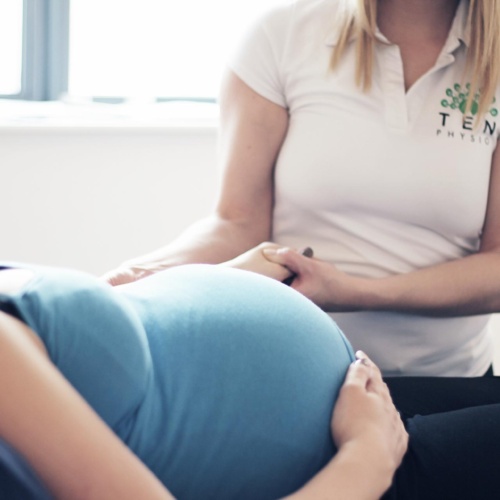“1 in every 3 women will experience a pelvic floor disorder during their lifetime” Elvie
“Incontinence affects almost 40% of women – twice as many as men. It is not a normal part of ageing, and it can be treated.” Womenshealth.gov
“30% of the female population – that’s 13 million women in the UK alone – are going through or are in menopause” MenopauseUK
A Women’s Health Physiotherapist can provide specialist, in-depth assessment and treatment for women of all ages and life stages, and for a range of issues and concerns, whether related to urinary or pelvic floor dysfunction, the onset or impact of menopause or most generally during pregnancy and post-partum.
Lumbar and Pelvic health issues
These are common issues (for example, almost 40% of the female population experiences urinary dysfunction). But for many people they are still private and worrying. Seeing a Physiotherapist with specialist knowledge and experience can provide much needed reassurance and confidence throughout their treatment and rehabilitation.
Pre and post natal support
Throughout pregnancy, women may seek assistance for safe exercise, including core and pelvic floor strengthening. Into the second and third trimester as their bump continues to grow, there can be greater pressure on the pelvis, pubis and lumbar spine. This can create pain and irritation, aggravated by long periods of sitting, walking, crossing legs and getting in and out of cars. Your Physiotherapist can treat pain by using manual therapy techniques on the pelvic muscles. You may also be given stability exercises to do at home, whilst using postural adjustments. Knowledge of pelvic floor muscle use helps with bladder and bowel support during foetal growth, alongside the utilisation of deep muscles throughout vaginal deliveries.
We strongly advise post-natal women to have a Physiotherapy assessment after their six-week GP check-up. Pelvic floor strength should be assessed following both vaginal and caesarean deliveries (this can be performed via an internal pelvic floor examination).
There is more pressure on the pelvic floor following a vaginal delivery, especially with history of 1st-4th degree tears. Your Physiotherapist can assist with muscle activation, control and endurance to prevent urinary incontinence. This may involve Stress Urinary Incontinence (urine leakage on coughing, sneezing or jumping), and Urge Urinary Incontinence (an inability to control the bladder for long periods of time). It is also possible to have Mixed Urinary Incontinence.
The deep core muscles work in conjunction with the pelvic floor muscles, which can be assessed postpartum. This is known as a ‘DRAM’ or a Diastasis Recti Abdominal Measurement. Once your Physiotherapist has given you stability exercises, a focus on return to sport and high impact sports can be progressed in the following months.
Non pregnancy-related stress incontinence
Stress urinary incontinence is widely discussed in the Pregnant and Post-Partum populations. However, it is not as commonly known that bladder symptoms can arise at a much younger age, with a particular correlation with female athletes and high impact sports. Due to repetitive impact creating increased intra-abdominal pressure, greater forces are placed upon the abdomen, pelvic floor and bladder neck, which can create leakages during exercise.
Pelvic floor physiotherapy is important for women of all age groups to identify and address any weakness or dysfunction, and help maintain a healthy, strong pelvic floor to support our pelvic organs throughout various life stages. I also believe teaching pelvic floor strengthening exercises in different positions is vital, so we can control our deep abdominals and pelvic floor muscles in all activities.
Menopause
For women entering Menopause, Women’s Health Physiotherapy can add valuable support, whether or not they have previously had children. As oestrogen levels drop, it’s important to continue low impact exercise for bone and muscle health. Muscle strength can decline during this phase, and we can help reverse this by creating specific, individualized exercise programmes and guiding you safely through them. Pilates is a great low impact option for women’s pelvic floor health, as it’s a highly effective whole-body workout that’s kind to the joints, but still improves stability, balance, posture, muscle strength and endurance – and in particular, core and pelvic floor strengthening, Frequent weight-bearing exercise on a weekly basis can also help to monitor oestrogen levels and manage symptoms experienced throughout menopause.





